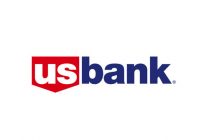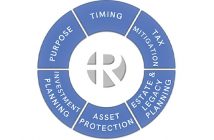Investment banker advocates for lost art of the ‘second oldest profession in the world.
Most people believe that making a profit in real estate means buying and selling at the right time, or renting their property and profiting over the long term, says investment banker Salvatore M. Buscemi.
Being handy with property renovations and having a great relationship with a bank can also prove essential.
But what if you’re better suited for a straightforward approach to short-term, high-interest financing for higher-than-normal returns — independent of the established banking norms? What if you want to build better relationships for safer investments?
That answer may be found in hard money lending, the, “second oldest profession in the world, right after that other one,” says Buscemi, managing director of Dandrew Partners LLC in New York City and author of Making the Yield: Real Estate Hard Money Lending Uncovered.
Hard money lending is a type of community lending and here’s how it works, Buscemi says. Investors act like a bank and make short-term loans to small businesses that buy and repair distressed properties, refinance them with conventional bank loans and repay the short-term loans at higher interest rates, generating more profitable returns for the original lenders.
“Cash flow is something everyone needs yet few people have — that’s been true since Bronze Age Sumerians were writing in cuneiform on clay tablets,” Buscemi says. “But in the 18th century such community lending was vilified, leaving a massive gap that banks have absorbed.”
Also called bridge loans, hard money loans are a specialized type of real-estate backed loans and fall within the peer-to-peer lending category, he says. As a lender, if you have a cash-strapped client who has missed several payments, then you have their collateral to resell and claim back your money with interest, he says.
“It’s a safe, short-term investment with nice returns, but doing without the established criteria on loans established through banks poses certain risks,” says Buscemi, who offers some need-to-know tips for navigating hard lending.
• Avoid hazards with insurance. When you know that the hazard insurance is in place — with adequate coverage — make sure that you are listed as the mortgagee. A little mortgagee clause that shows you are the mortgagee with your name and address on the policy matters. This clause should also show that you are in first position to be paid, should the property be foreclosed on.
• Know the many different types of insurance. They include policies: hazard, vacant dwelling, flood insurance, builder’s risk and loss of rents coverage. A very large part of your job as a hard money lender is to minimize the risk in a high-risk field. You are already doing all you can to reduce the risk of lending to a particular individual, which is great. But now you need to acknowledge that there are external factors that can affect your investment.
• Build in prepayment penalties. Lenders want to make money on loans, which is not possible if the loan is repaid in full almost immediately after one is provided. The penalty would only apply for the first few months of the loan; after that, the borrower will not incur a penalty if they want to settle the debt. You don’t want to distress borrowers, but you also want to protect lenders against losses from ultra-short-term loans.
• What you risk without agreed-upon prepayment penalties. If you do not build in prepayment penalties as part of a promissory note or mortgage, you are potentially leaving money on the table. Without such penalties you are giving an opportunity for unscrupulous borrowers to come in and take advantage of your lending system. Don’t leave yourself vulnerable.
Salvatore M. Buscemi began his career at Goldman Sachs, where he worked four years as an investment banker. A frequent speaker on hard money lending, Buscemi also co-founded Dandrew Strategies LLC, a $30 million real estate solutions provider in the secondary mortgage market specializing in non-performing residential mortgage portfolios.
(Photo above | Cascade Business News)





